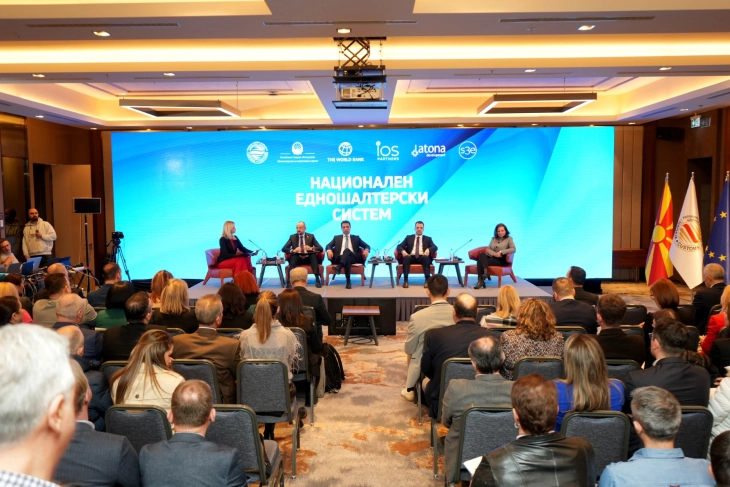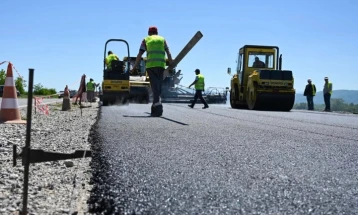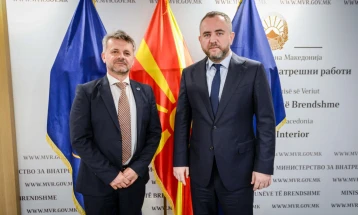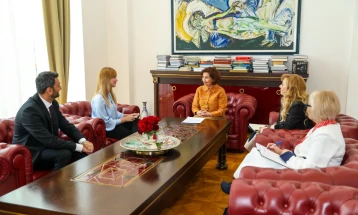National one-stop-shop system to speed up and facilitate transport, trade
- The national one-stop-shop system is aimed at facilitating trade, speeding up transport and accelerating EU integration. About USD 4 million have been provided for its implementation within the World Bank's Western Balkans Trade and Transport Facilitation Project.

Skopje, 7 February 2024 (MIA) - The national one-stop-shop system is aimed at facilitating trade, speeding up transport and accelerating EU integration. About USD 4 million have been provided for its implementation within the World Bank's Western Balkans Trade and Transport Facilitation Project.
The tender for the implementation of the system is expected to be published in the first quarter of 2024. In addition to the Customs Administration, which is the coordinator, a total of 16 state institutions will be involved in the entire process. The new system is to enable complete digitization in the issuance of permits, licences and their payment, collective use of data by the institutions and communication with the institutions of other countries.
"The system is to reduce the costs and the waiting time required in the completion of export and import procedures. This will enable facilitation of trade, speeding up transport, accelerated integration in the EU, thus increasing the competitiveness of Macedonian companies and improving the conditions for doing business. The interpretation of the system will make it possible to improve the risk analysis for all institutions that are involved in issuing permits in cross-border trade, which will reduce the number of checks, while increasing the quality of services," said Customs Administration director Stefan Bogoev.
According to Deputy PM for Economic Affairs Fatmir Bytyqi, the business sector will experience the benefits of the system very soon.
"The fact that the region has too many borders that are real gridlocks and actual obstacles to doing business for our companies, is the first and main reason why we focused on facilitating the transit of capital and labor, as well as goods and services when we started implementing this project," Bytyqi pointed out.
He called on everyone involved in the project to fully dedicate themselves to the job and work to create a new law on one-stop-shop system, even though the country is entering the pre-election period, so that the project can result in a legal solution that will be fully applicable in practice.
"I deliberately mentioned the pre-election period because when I was part of the business community, I know that every time we entered a pre-election period we were told it was time for a break. But business doesn't have time to take a break, it can't afford to wait three, six, or nine months for politicians to agree on how to run the country," Bytyqi pointed out.
According to Minister of Transport and Communications Blagoj Bochvarski, work is underway to implement an intelligent transport system on the southern part of Corridor 10, which, together with the rehabilitation of the roads, will enable accelerated trade and transport.
"At the same time, as part of the World Bank's project, work is underway to implement an intelligent transport system. This, as well as the rehabilitation of all roads, will enable accelerated trade and transport," said Bochvarski.
In addition to the introduction of the one-stop-shop system, the modernization of the border crossings is also financed through the World Bank's project.
"Installation of a video surveillance system is underway, as well as recognition of licence plates at all border crossings in the country, which will step up the automatic control over passenger and cargo vehicles that cross the borders," said World Bank's Tatjana Markovska.
Photo: Customs Administration







